About this place
Mylies Beach has a picnic area nestled in the dunes, with a short walk along the edge of a small creek to the beach. The low limestone cliffs at Mylies Beach are an unusual sight. Most of the coastline in the park consists of broad sandy bays separated by headlands and steep cliffs made of very hard quartzite and schist rock that are 400 million years old!
The much younger limestone at Mylies was created during the last two million years when wind-blown dunes of shelly material were dissolved and cemented together by rainfall.
Mylies Beach was named after Mr. Mildwaters, a local publican and farmer, who had a fishing camp at this spot for some years. Mylies Beach offers good fishing and whale watching. During winter, southern right whales may shelter close to shore with their newborn calves.
Safety information
Plan when to visit. Consider travelling with a personal location beacon (PLB). In the event you need to be rescued it could save your life!
Western Shield - The Department of Biodiversity, Conservation and Attractions undertakes 1080 baiting at this location to reduce the impacts of feral cats and foxes on native wildlife.
Meat baits containing 1080 poison are laid in or around this area on an ongoing basis. 1080 is poisonous to humans and will kill domestic cats and dogs. Pets are not permitted in this park.
For further information contact your local Parks and Wildlife Service office or visit Western Shield.
Gallery
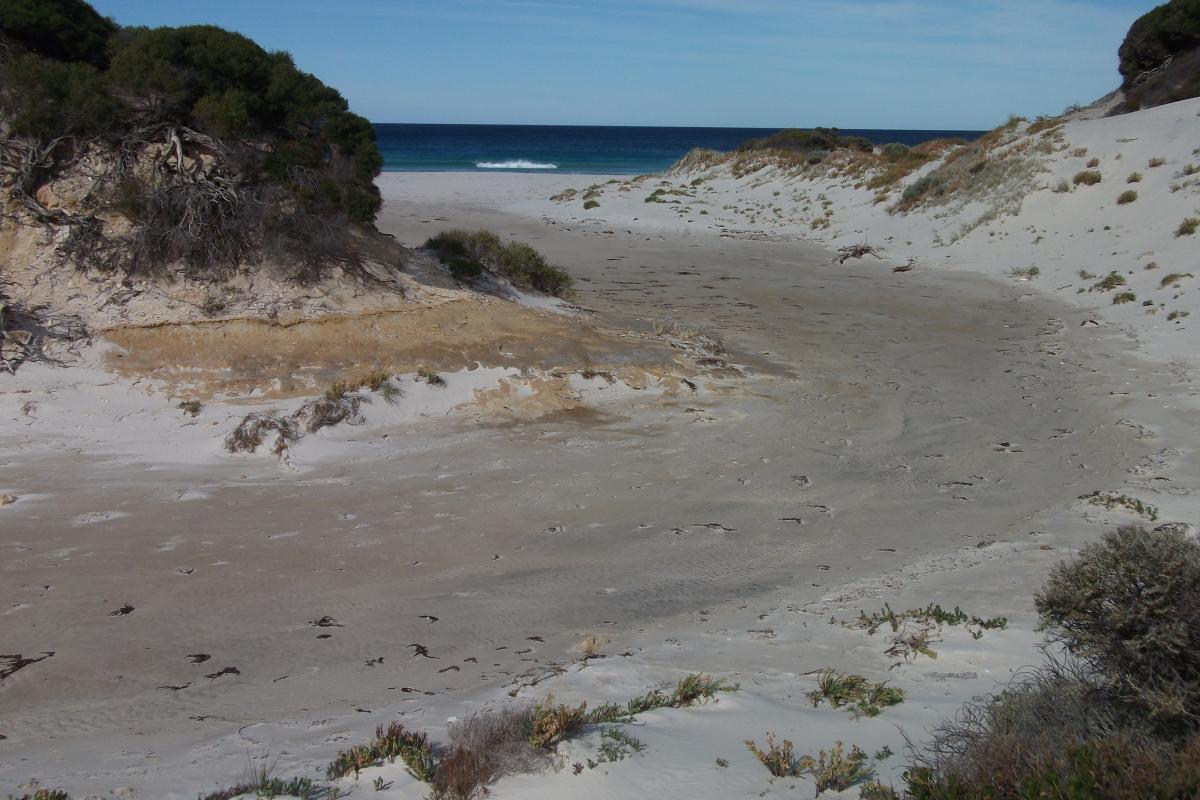
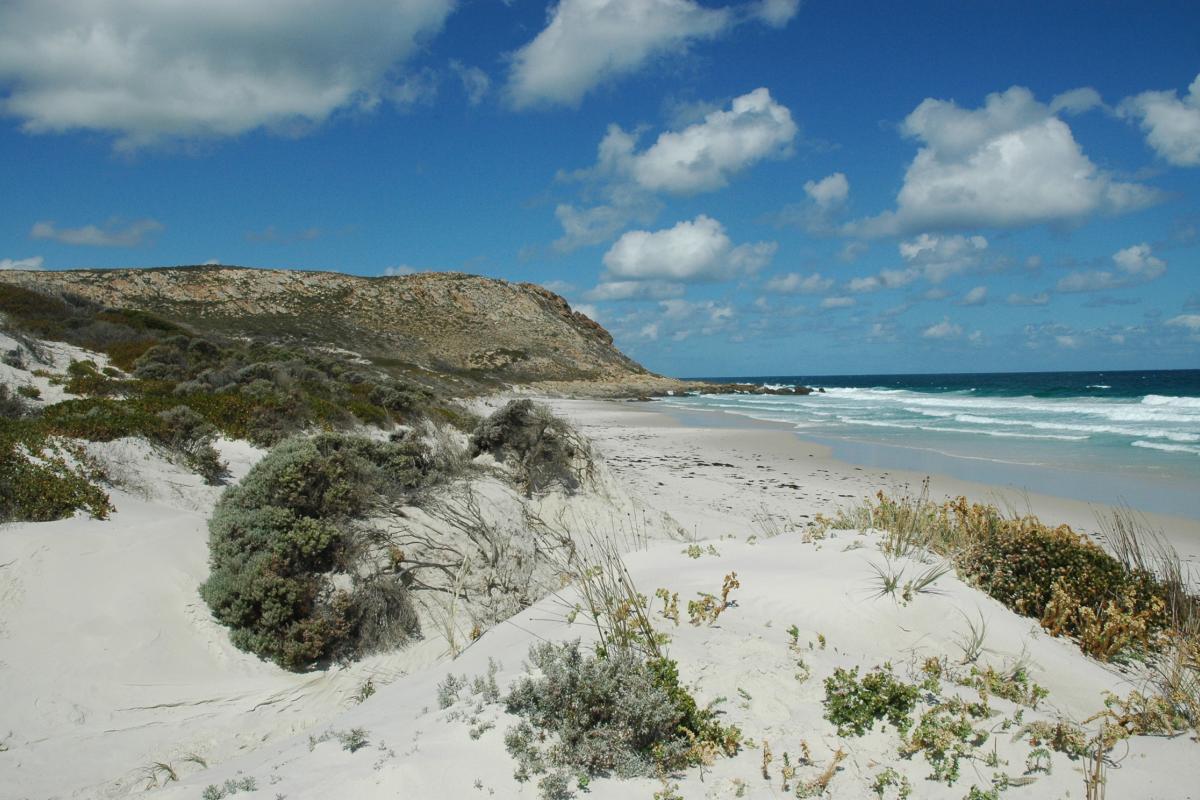
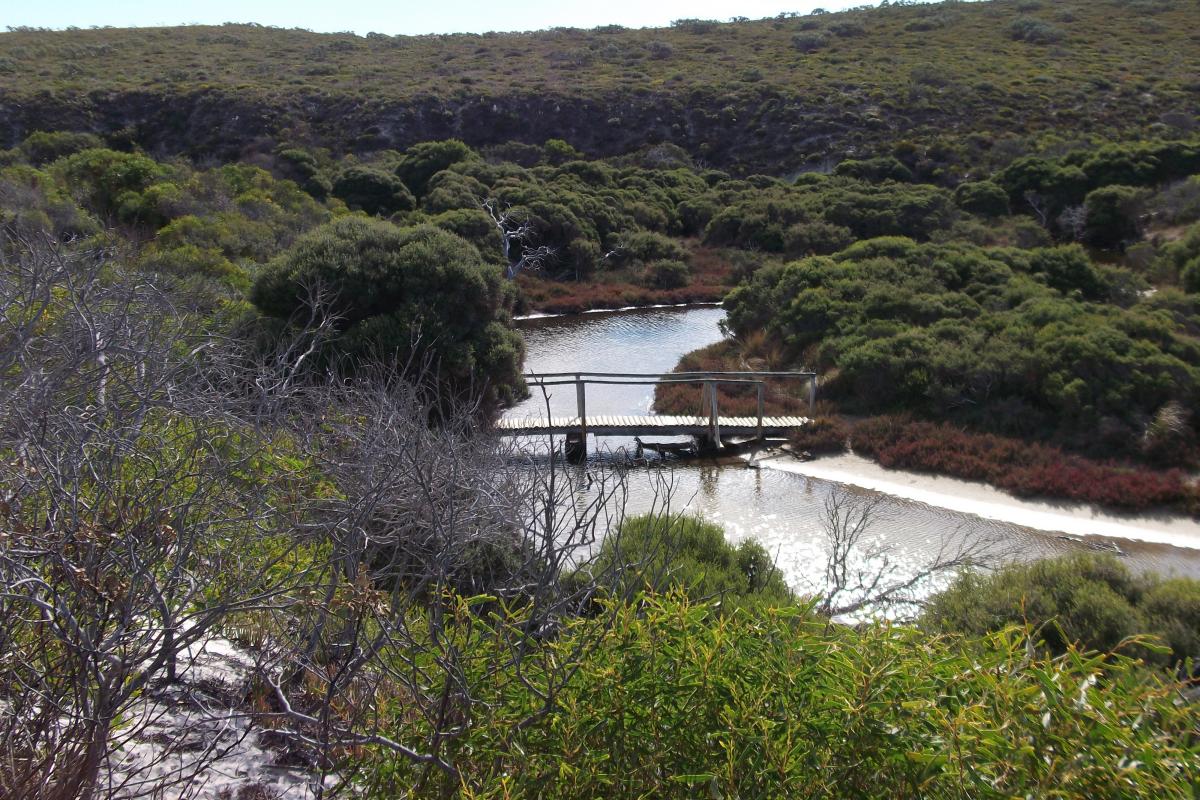
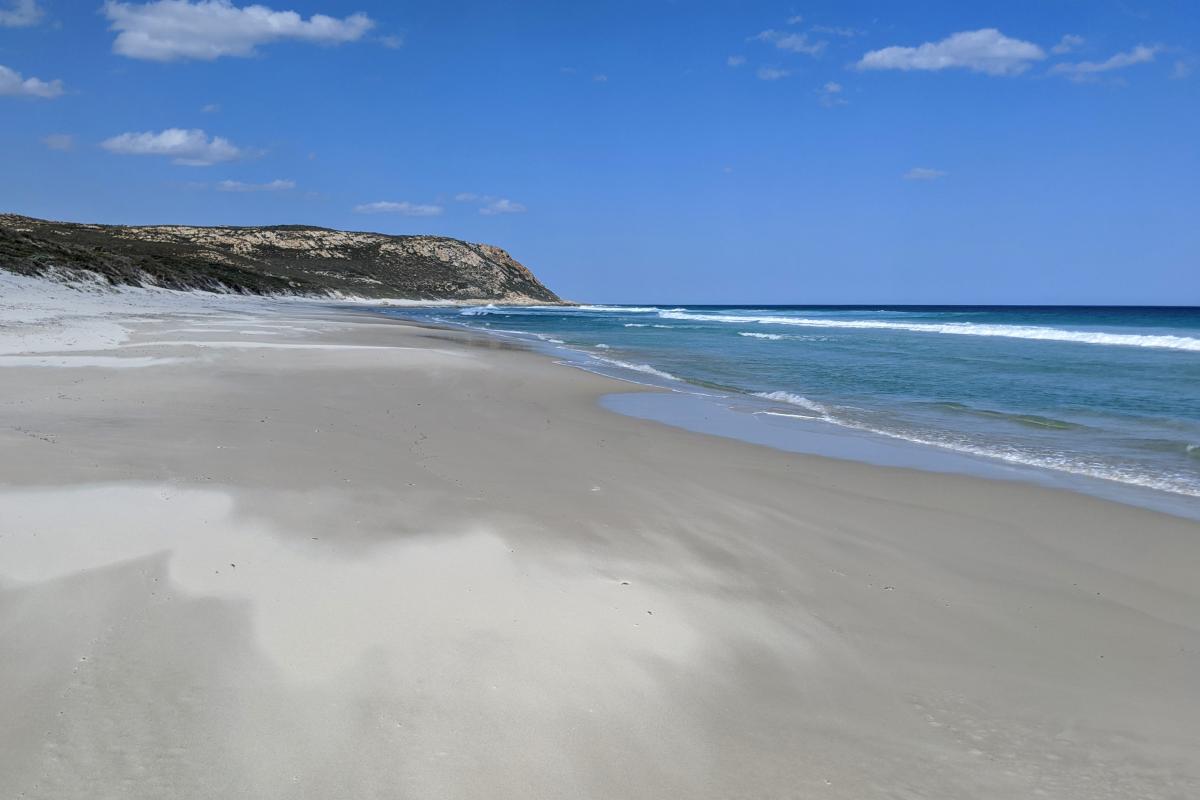
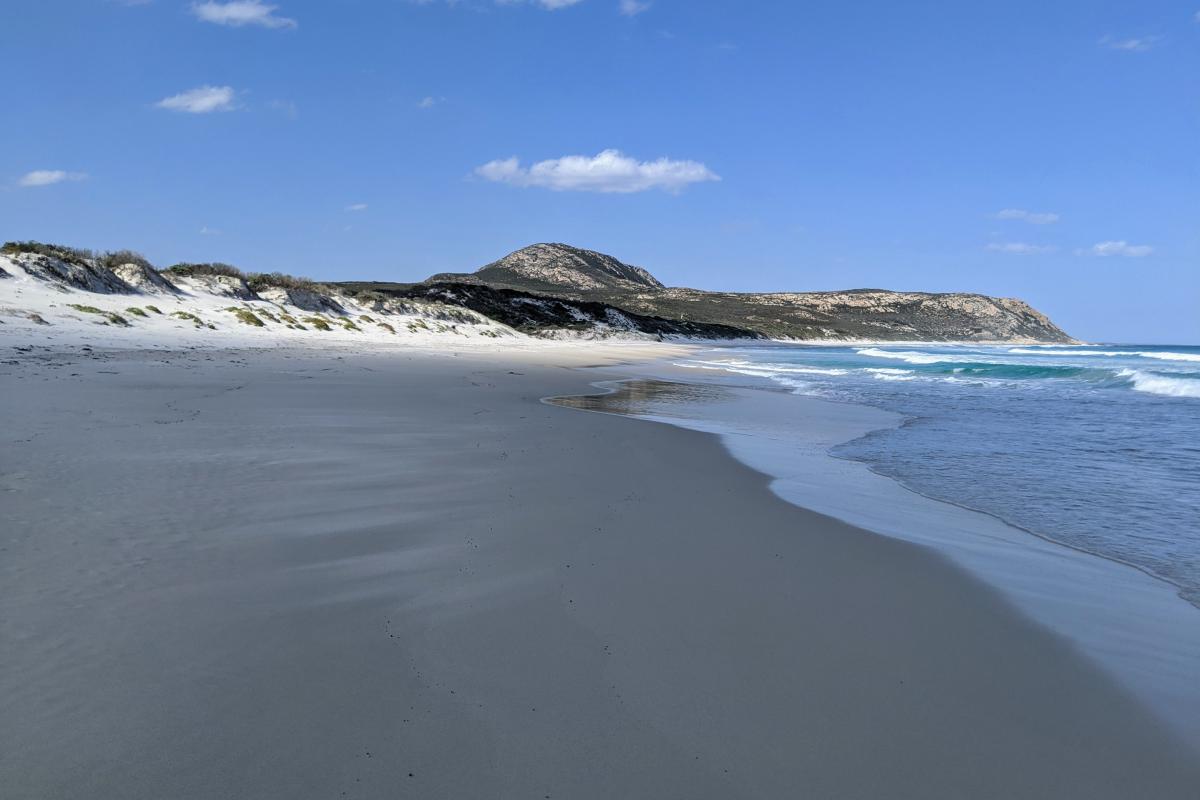
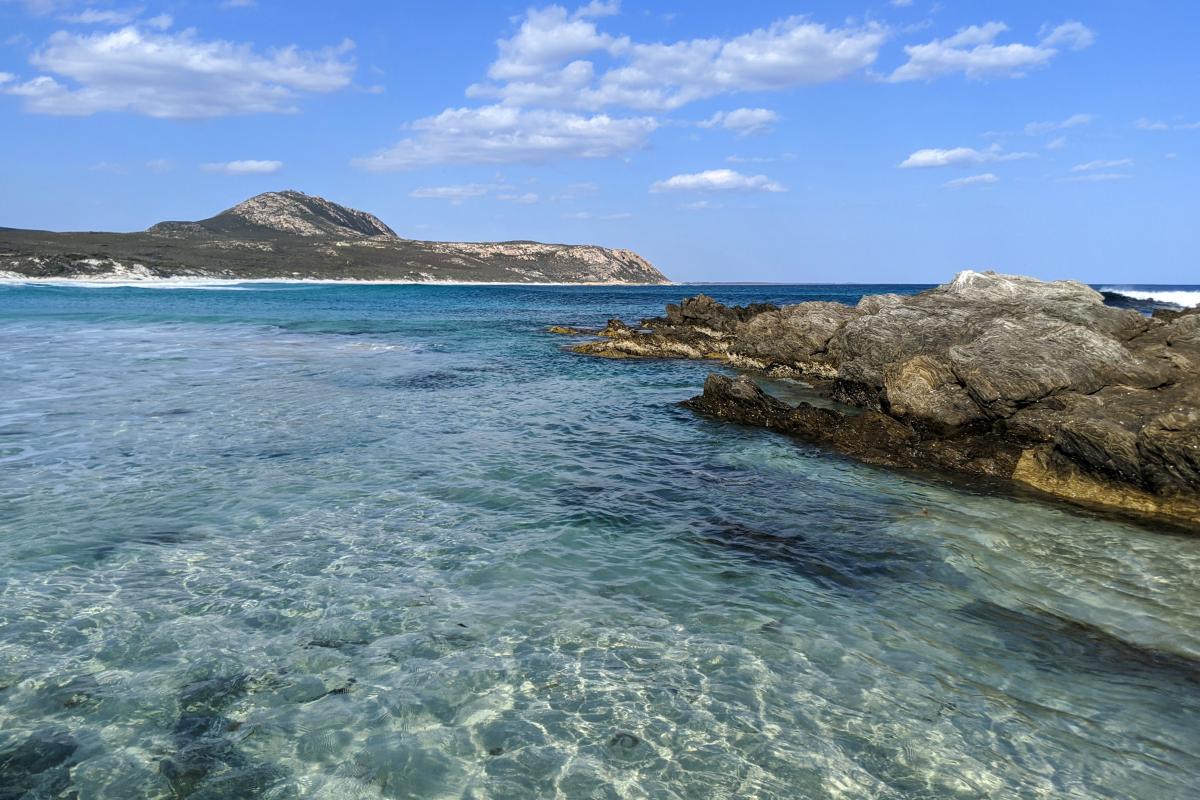
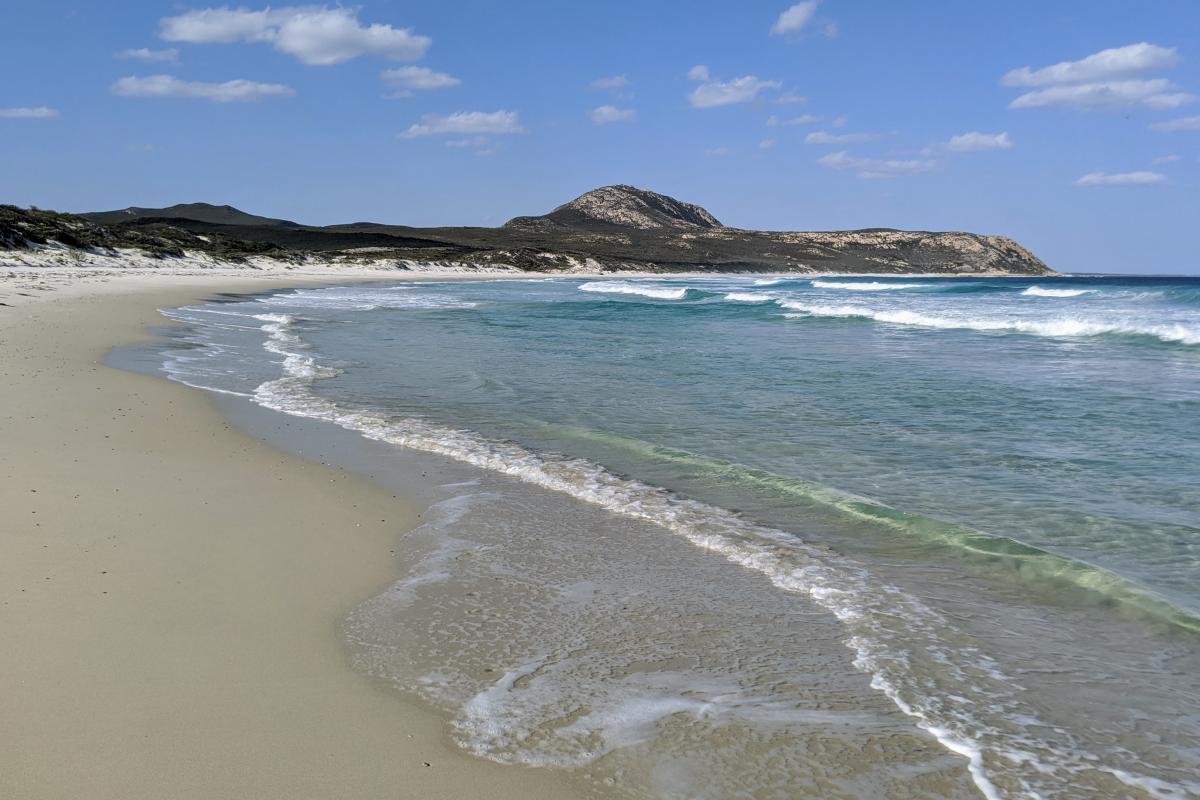
Make the Esperance Promise
While travelling in and around Esperance, make a promise to embrace the elements of this land and ensure your visit is sustainable and respectful. Make the Esperance Promise.
Please note, campfires are not permitted at any of the campgrounds in national parks.
Facilities
Barbecue
Toilet
Activities
 Fishing
Fishing
 Surfing
Surfing
Plants, wildlife and fungi
Visit the Atlas of Living Australia for a list of species recorded within a 5km radius of Mylies Beach.
Traditional Owners
We recognise and acknowledge Goreng, Menang and Wudjari people as the Traditional Owners of Fitzgerald River National Park.